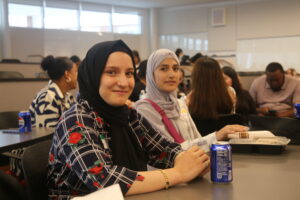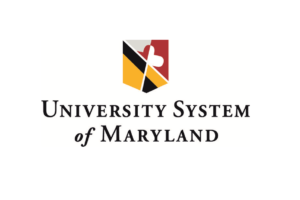Next Step Robotics Wins Pitch Dingman Competition Grand Prize, Announces New Board Members

NextStep Robotics device, AMBLE, in action. The device helps alleviate the foot drop condition that often appears after a stroke. Photo Credit: NextStep Robotics.
Published on the UM Ventures website | May 13, 2024
The University of Maryland (UM) BioPark today announced its newest tenant, NextStep Robotics Inc., a therapeutic device and robotics company creating advanced solutions to alleviate and eventually eliminate foot drop symptoms. NextStep, a company based on technology licensed from University of Maryland, Baltimore (UMB), will use its new 3,600-sq. ft. space to build out its manufacturing capabilities as well as a state-of-the-art biomechanics laboratory including advanced motion analysis systems.
“We are thrilled that NextStep Robotics selected the BioPark as their headquarters,” said Jane Shaab, associate vice president for economic development UMB and executive director of the BioPark. “Being located on UMB’s campus, the BioPark creates prime opportunities for our tenants to partner with and access the University’s incredible researchers, medical facilities, and resources.”
NextStep Robotics has created a cutting-edge solution for foot drop by developing a portable ankle robot, AMBLE. The device is intended to alleviate the workload of physical therapists while maximizing mobility outcomes for patients with foot drop. Foot drop is a mobility disability resulting from an underlying neurological or muscular injury and affects millions of people nationwide each year. Combined with state-of-art software embedding intelligent algorithms, this first-of-its-kind, clinically proven option reduces the devastating impacts of foot drop to provide safe and gentle assistance for each step.
“We chose the UM BioPark because we wanted to be near the University of Maryland Medical System clinicians and patients,” said Brad Hennessie, chief executive officer and co-founder of NextStep Robotics. “We also needed space to build our internal manufacturing capabilities and a state-of-the-art gait lab near UMB so that it may be as a service to local researchers and even as a potential teaching tool for programs like those offered in the Department of Physical Therapy and Rehabilitation Science.”
“This new space allows us to meet the demands of the milestones we have set, but also stretch out a bit and create the kind of environment we want to for our employees.”
NextStep’s AMBLE device is now entering clinical trials to prove its efficacy as a therapeutic device for stroke rehabilitation and will initially launch on a limited basis as an exercise device later this year.
Founded in 2017, NextStep has grown from 3 to 11 employees and has raised over $6 million in funding. The Maryland Momentum Fund, the University System of Maryland’s investment program, and UM Ventures, UMB’s investment program, have invested $500,000 in NextStep through two funding rounds.



